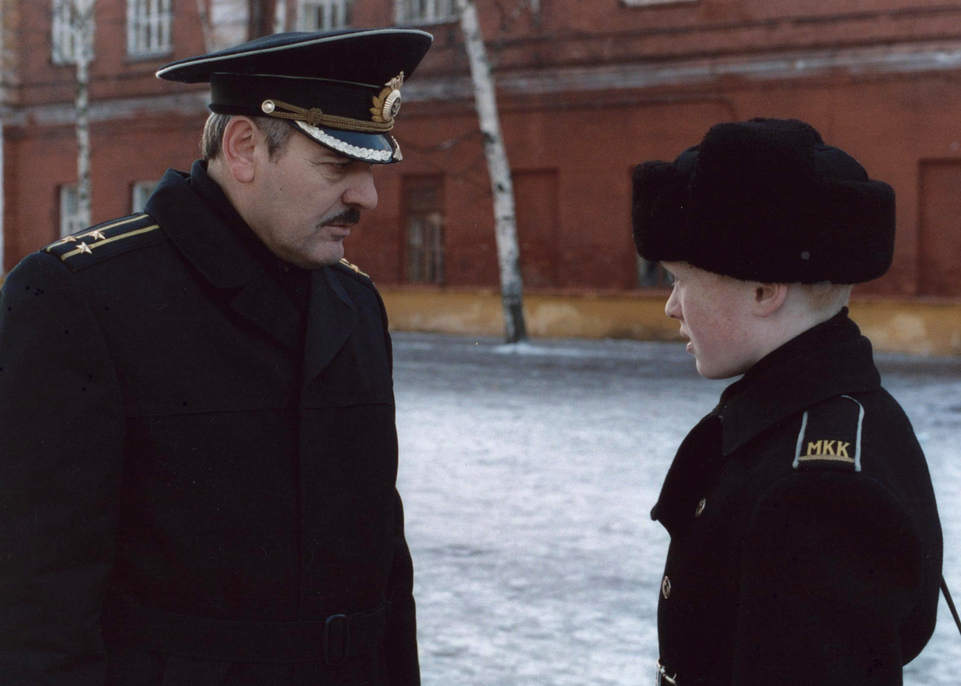With only a few words and a lot of attractive film methods and with sounds of an Orthodox Church choir, folk and classical music, the Finnish director questions basic emotional conditions in humans, particularly focusing on delicacy of children. She has used the war in Chechnya as a basis for three different stories, painting each of them in one, dominant emotion. Thirteen-year-old cadets of the St. Petersburg military school occupy the first room. They are not there by their own choice – most of them come from dysfunctional families and the burden of their loneliness is huge. One of the boys will serve as an ‘entrance’ to the second room, the breathing room, where we witness cursed fate of seventy five little orphans whose parents were killed by Russians in Grozny. The last one is the room of remembrance – it crosses Chechnyan border and tells us about the tragedy of the people of the province of Ingushetia.
--
"On Kronstadt, an island near St. Petersburg, there is a Military Academy attended by cadets between the age of ten and fourteen. At the academy, they are taught to become obedient soldiers loyal to their homeland and the Orthodox faith. In Grozny, the completely destroyed capital of Chechnya, self-sacrificing humanitarian Džadizat Gatajeva is trying to help a mother with three children who fell ill working at an oil plant and now does not know what to do. A refugee camp in Ingushetia, a country bordering Chechnya. All those who managed to survive the Russian invasion took refuge there, but Ingushetia has just revoked their asylum because Russia claims it is no longer at war with Chechnya. With this triptych, Finnish documentarian Pirjo Honkasalo subtly analyzes the closed circle of violence. Children who are raised to be soldiers will commit crimes that will be encouraged by those in power. In the last shots of her film, the director warns that the conflict in Chechnya would certainly not exist if it were not for the precious oil route that Russia does not want to give up."
- Nenad Polimac
Finland 2004, '106
DIRECTOR: Pirjo Honkasalo
SCENARIO: Pirjo Honkasalo
CAMERA: Pirjo Honkasalo
MONTAGE: Niels Pagh Andersen, Pirjo Honkasalo
MUSIC: Sanna Salmenkallio
PRODUCERS: Kristiina Pervilä
FESTIVALS & AWARDS:
ZagrebDox: Winner – Big Stamp (2005)
IDFA: Amnesty International DOEN Award (2004)
Venice FF: EIUC Award Special Mention; Human Rights Film Network Award; Lina Mangiacapre Award
Full Frame DFF: Seeds of War (2005)
Tampere FF: Main Prize, Finnish Short Film Over 30 minutes (2005)
Thessaloniki IDF: FIPRESCI Prize (2005)
Yerevan IFF: Grand Prix - Golden Apricot, Best Documentary Film (2005)

.jpg)






.png)


.png)










.png)






























.png)


.png)



.png)
